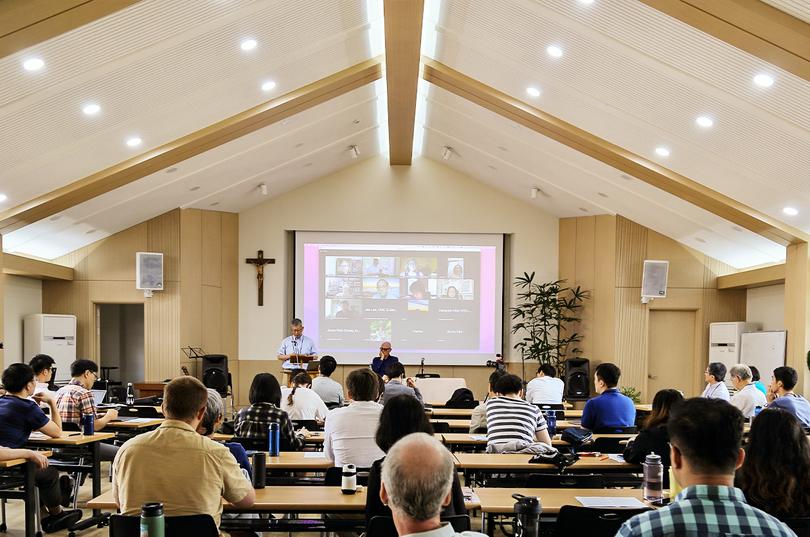More than 70 Christians attended the 10th Christian Forum for Reconciliation in Northeast Asia in South Korea, the first full-scale in-person conference since the pandemic.
Initiated by Duke Divinity School's Center for Reconciliation, the Mennonite Central Committee, and colleges and institutions in Northeast Asia, the annual forum centers on the ministry of reconciliation.
Conducted in the Sacred Heart Spirituality Center in Paju from June 5 to 10 this year, the forum was themed “Post-COVID World and the Ministry of Reconciliation”. The ninth forum took place on a smaller scale in South Korea after two previous online forums.
To forward the ministry of reconciliation in the Northeast through Christian leadership, community and healing across divides, prophetic witness, and catalysts for collaboration and new initiatives, the forum adopts the phrase "Word Made Flesh", examining the three critical dimensions that it contains: theological ("the Word"), contextual ("became flesh"), and practical ("and dwelt among us"), according to 2 Corinthians 5:18. The forum embraces five themes through the theological journey: new creation, lament, pilgrimage, hope, and call.
Hae Young Choi, Provincial, Religious of the Sacred Heart, Korea/Chinese Province, welcomed the onsite participants from the United States, Canada, mainland China, Hong Kong, Taiwan, Japan, and Korea in the opening speech, “Diverse participants are here in this forum. They include priests, pastors, and laypeople from various denominations and professions. Some are scholars, activists, and young people who are important members of society. However, the identity that unites us is solely the fact that we are ‘Christians.’ If this forum were not a Christian forum, I believe it would have been difficult to sustain this gathering for 10 years.”
“As you meet each other, exchange information and knowledge, encourage one another, and become friends during the progress of the forum, you will gain new passion and become artisans of reconciliation. When I meet someone moving with passion in times when I feel depleted, I receive strength again and regain hope,” she continued.
“The work of achieving reconciliation and aspiring for peace may seem like a dream or a vision. What we are trying to accomplish may be impossible for humans, but it is possible for the Holy Spirit.”
The provincial cited a paradigm shift in the Second Vatican Council: the Catholic Church opened its doors to the world and proclaimed that there is salvation outside the church. The overnight change of 180 degrees brought about a great transformation.
“After more than 50 years, a wave of significant change is approaching. The (Catholic) congregation is facing the reality of declining membership and an aging population, and we are on the brink of changing the structure of the congregation and embracing the sharing of resources.”
Mentioning that the Society of the Sacred Heart will encompass five countries into one province, she was “sharing about the structural changes in my religious congregation with the hope that the spirit of the Christian Forum for Reconciliation in Northeast Asia will have a significant impact on each of us as religious, and also with the thought that there may be elements that Forum participants can learn from our communal life of religious.”
The four mornings started with worship and devotionals, and the evenings concluded with Taizé prayer services. During the day, plenary sessions were given by professors and ministry leaders, and breakout sessions were held about politics, gender conflict, and reconciliation issues. A Paju pilgrimage was carried out to visit the Unification Observatory, the North Korean Cemetery, the Displaced People’s Cemetery, and the Catholic Church of Reconciliation and Repentance.
The plenary speakers included Dr. Douglas Campbell from Duke Divinity School (USA), Dr. Tom Sakon from Aoyama Gakuin University (Japan), Dr. Paulus Widjaja from Duta Wacana Christian University (Indonesia), Dr. Nina Balmaceda from the Center for Reconciliation at Duke Divinity School (USA), and Dr. Chris Rice from the Mennonite Central Committee United Nations Office (USA).












